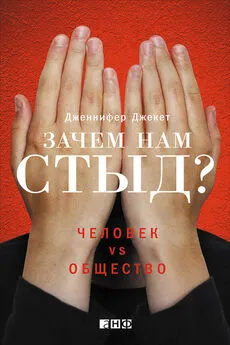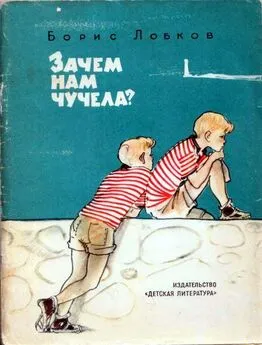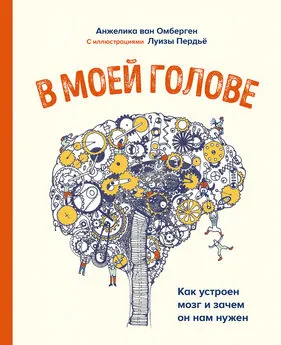Дженнифер Джекет - Зачем нам стыд? Человек vs. общество
- Название:Зачем нам стыд? Человек vs. общество
- Автор:
- Жанр:
- Издательство:Литагент Альпина
- Год:2016
- Город:Москва
- ISBN:978-5-9614-4248-9
- Рейтинг:
- Избранное:Добавить в избранное
-
Отзывы:
-
Ваша оценка:
Дженнифер Джекет - Зачем нам стыд? Человек vs. общество краткое содержание
Зачем нам стыд? Человек vs. общество - читать онлайн бесплатно ознакомительный отрывок
Интервал:
Закладка:
51
Ian G. Warkentin, David Bickford, Navjot S. Sodhi, and Corey J. A. Bradshaw, «Eating Frogs to Extinction,» Conservation Biology 23, no. 4 (2009): 1056–1059.
52
Agnès Gault, Yves Meinard, and Franck Courchamp, «Consumers' Taste for Rarity Drives Sturgeons to Extinction,» Conservation Letters 1, no. 5 (2008): 199–207.
53
Elena Angulo, Anne-Laure Deves, Michel Saint Jalmes, and Franck Courchamp, «Fatal Attraction: Rare Species in the Spotlight,» Proceedings of the Royal Society B 276, no. 1660 (2009): 1331–1337.
54
Bryan L. Stuart, Anders G. J. Rhodin, L. Lee Grismer, and Troy Hansel, «Scientific Description Can Imperil Species,» Science 312, no. 5777 (2006): 1137.
55
Bernard W. Powell, «A Problem in Archaeology Too,» Science 313, no. 5789 (2006): 916.
56
Ernst Fehr and Simon Gachter, «Altruistic Punishment in Humans,» Nature 415 (2002): 137–140.
57
Xiao-Ping Chen and Daniel G. Bachrach, «Tolerance of Free Riding: The Effects of Defection Size, Defection Pattern and Social Orientation,» Organizational Behavior and Human Decision Processes 90, no. 1 (2003): 139–147.
58
Christel G. Rutte and Henk A. M. Wilke, «Goals, Expectations and Behavior in a Social Dilemma Situation,» in Social Dilemmas, ed. Wim Liebrand, David Messick, and Henk Wilke (Elmsford, N. Y.: Pergamon Press, 1992), 289–305.
59
См., например: Will Felps, Terence R. Mitchell, and Eliza Byington, «How, When, and Why Bad Apples Spoil the Barrel: Negative Group Members and Dysfunctional Groups,» Research in Organizational Behavior 27 (2006): 175–222. Фелпс также обсуждает свой эксперимент с Айрой Глассом в выпуске «Кто навредил нам всем» радиопередачи This American Life , впервые вышедшем в эфир 19 декабря 2008 года.
60
Президент Джордж Буш. «Письмо сенаторам Хейгелу, Хелмсу и др.», пресс-релиз, 13 февраля 2001 года.
61
Отметим, однако, что принявшие участие в исследовании 2009 года 888 американцев и несколько тысяч европейцев в огромном большинстве согласились с утверждением «Моя страна делает все возможное для решения проблемы изменения климата», даже когда речь шла о странах, не прикладывающих особых усилий в этом направлении.
62
Norbert L. Kerr, Ann C. Rumble, Ernest S. Park, et al., «How Many Bad Apples Does It Take to Spoil the Whole Barrel? Social Exclusion and Toleration for Bad Apples,» Journal of Experimental Social Psychology 45, no. 4 (2009): 603–613.
63
Alan Gerber and Todd Rogers, «Descriptive Social Norms and Motivation to Vote: Everybody's Voting and So Should You,» Journal of Politics 71, no. 1 (2009): 178–191.
64
Robert B. Cialdini, Linda J. Demaine, Brad J. Sagarin, et al., «Managing Social Norms for Persuasive Impact,» Social Influence 1, no. 1 (2006): 3–15.
65
James J. Choi, David Laibson, Brigitte Madrian, and Andrew Metrick, «Plan Design and 401 (k) Savings Outcomes,» National Tax Journal 57, no. 2 (2004): 275–298.
66
Martin Luther King, «Nonviolence and Racial Justice,» Christian Century, February 6, 1957.
67
Cited in Samual Bowles and Herbert Gintis, A Cooperative Species: Human Reciprocity and Its Evolution (Princeton, N. J.: Princeton University Press, 2011).
68
Maciek Chudek and Joseph Henrich, «Culture-Gene Coevolution, Norm-Psychology and the Emergence of Human Prosociality,» Trends in Cognitive Sciences 15, no. 5 (2011): 218–226.
69
Elif Batuman, The Possessed: Adventures with Russian Books and the People Who Read Them (New York: Farrar, Straus and Giroux, 2010).
70
Nichola J. Raihani and Tom Hart, «Free-Riders Promote Free-Riding in a Real-World Setting,» Oikos 119, no. 9 (2010): 1391–1393.
71
Kees Keizer, Siegwart Lindenberg, and Linda Steg, «The Spreading of Disorder,» Science 322, no. 5908 (2008): 1681–1685.
72
Maciek Chudek and Joseph Henrich, «Culture-Gene Coevolution, Norm-Psychology and the Emergence of Human Prosociality,» Trends in Cognitive Sciences 15, no. 5 (2011): 218–226.
73
Jennifer N. Engler and Joshua Landau, «Source Is Important When Developing a Social Norms Campaign to Combat Academic Dishonesty,» Teaching of Psychology 38, no. 1 (2011): 46–48.
74
Peng Gong, «Cultural History Holds Back Chinese Research,» Nature 418, no. 7382 (2012): 411.
75
Eric Posner, «Symbols, Signals, and Social Norms in Politics and the Law,» Journal of Legal Studies 27, no. S2 (1998): 765–797.
76
Christine Ingebritsen, «Norm Entrepreneurs: Scandinavia's Role in World Politics,» Cooperation and Conflict 37, no. 1 (2002): 11–23.
77
Robert Metz, «Market Place; Aiding Hostile Takeover Bids,» New York Times, December 28, 1981.
78
David Skeel, «Shaming in Corporate Law,» University of Pennsylvania Law Review 149 (2001): 1811–1868.
79
Joseph Henrich, Jean Ensimger, Richard McElreath, et al., «Markets, Religion, Community Size, and the Evolution of Fairness and Punishment,» Science 327, no. 5972 (2010): 1480–1484.
80
Uri Gneezy and Aldo Rustichini, «A Fine Is a Price,» The Journal of Legal Studies 29, no. 1 (2000): 1–17.
81
Armin Falk and Nora Szech, «Morals and Markets,» Science 340, no. 6133 (2013): 707–711.
82
Roland Fryer, «Financial Incentives and Student Achievement: Evidence from Randomized Trials,» Quarterly Journal of Economics 126, no. 4 (2011): 1755–1798.
83
Michael J. Sandel, «What Isn't for Sale?» The Atlantic, February 27, 2012.
84
Josep Call, Juliane Bräuer, Juliane Kaminski, and Michael Tomasello, "Domestic Dogs ( Canis Familiaris ) Are Sensitive to the Attentional State of Humans," Journal of Comparative Psychology 117, no. 3 (2003): 257–263.
85
Arata Kochi, «Tuberculosis Control – Is DOTS the Health Breakthrough of the 1990s?» World Health Forum 18, no. 3–4 (1997): 225–232.
86
Azim F. Shariff and Ara Norenzayan, «God Is Watching You: Priming God Concepts Increases Prosocial Behavior in an Anonymous Economic Game,» Psychological Science 18, no. 9 (2007): 803–809.
87
Jesse M. Bering, «The Folk Psychology of Souls,» Brain and Behavioral Sciences 29, no. 5 (2006): 453–462.
88
Max Ernest-Jones, Daniel Nettle, and Melissa Bateson, «Effects of Eye Images on Everyday Cooperative Behavior: A Field Experiment,» Evolution and Human Behavior 32 (2011): 172–198.
89
Damien Francey and Ralph Bergmüller, «Images of Eyes Enhance Investments in a Real-Life Public Good,» PLOS ONE 7, no. 5 (2012): e37397.
90
Kevin J. Haley and Daniel M. T. Fessler, «Nobody's Watching? Subtle Cues Can Affect Generosity in an Anonymous Economic Game,» Evolution and Human Behavior 26, no. 3 (2005): 245–256.
91
Adriaan R. Soetevent, «Anonymity in Giving in a Natural Context – A Field Experiment in 30 Churches,» Journal of Public Economics 89, no. 11–12 (2005): 2301–2323.
92
Barry Webb and Gloria Laycock, Reducing Crime on the London Underground: An Evaluation of Three Pilot Projects, Crime Reduction Unit Paper 30 (London: HMSO, 1992).
93
Dominique J.-F. de Quervain, Urs Fischbacher, Valerie Treyer, et al., «The Neural Basis of Altruistic Punishment,» Science 305, no. 5688 (2004): 1254–1258.
94
Glenn Greenwald, «The Untouchables: How the Obama Administration Protected Wall Street from Prosecutions,» Guardian, January 23, 2013.
95
Jesse Eisenger, «Why Only One Top Banker Went to Jail for the Financial Crisis,» New York Times Magazine, April 30, 2014, http://www.nytimes.com/2014/05/04/magazine/only-one-top-banker-jail-financial-crisis. html? _r=0.
96
Hank Davis, "Theoretical Note on the Moral Development of Rats ( Rattus Norvegicus )," Journal of Comparative Psychology 103, no. 1 (1989): 88–90.
97
Michael Lachmann and Carl T. Bergstrom, "The Disadvantage of Combinatorial Communication, " Proceedings of the Royal Society of London B 271, no. 1555 (2004): 2337–2343.
98
Sievert Rohwer, «Status Signaling in Harris Sparrows: Some Experiments in Deception,» Behaviour 61, no. 1–2 (1977): 107–129.
99
Benjamin Alamar and Stanton A. Glantz, «Effects of Increased Social Unacceptability of Cigarette Smoking on Reduction in Cigarette Consumption,» American Journal of Public Health 96, no. 8 (2006): 1359–1363.
100
Alan S. Gerber, Donald P. Green, and Christopher W. Larimer. «Social Pressure and Voter Turnout: Evidence from a Large-Scale Field Experiment,» American Political Science Review 102, no. 1 (2008): 33–48.
101
Costas Panagopoulos, «Affect, Social Pressure and Prosocial Motivation: Field Experimental Evidence of the Mobilizing Effects of Pride, Shame and Publicizing Voting Behavior,» Political Behavior 32 (2010): 369–386.
102
Kenneth Roth, «Defending Economic, Social and Cultural Rights: Practical Issues Faced by an International Human Rights Organization,» Human Rights Quarterly 26, no. 1 (2004): 63–73.
103
Brian Elbel, Glen B. Taksler, and Tod Mijanovich, «Promotion of Healthy Eating Through Public Policy: A Controlled Experiment,» American Journal of Preventive Medicine 45, no. 1 (2013): 49–55.
104
Pirjo Pietinen, Liisa M. Valsta, Tero Hirvonen, and Harri Sinkko, «Labelling the Salt Content in Foods: A Useful Tool in Reducing Sodium Intake in Finland,» Public Health Nutrition 11, no. 4 (2007): 335–340.
Читать дальшеИнтервал:
Закладка:










